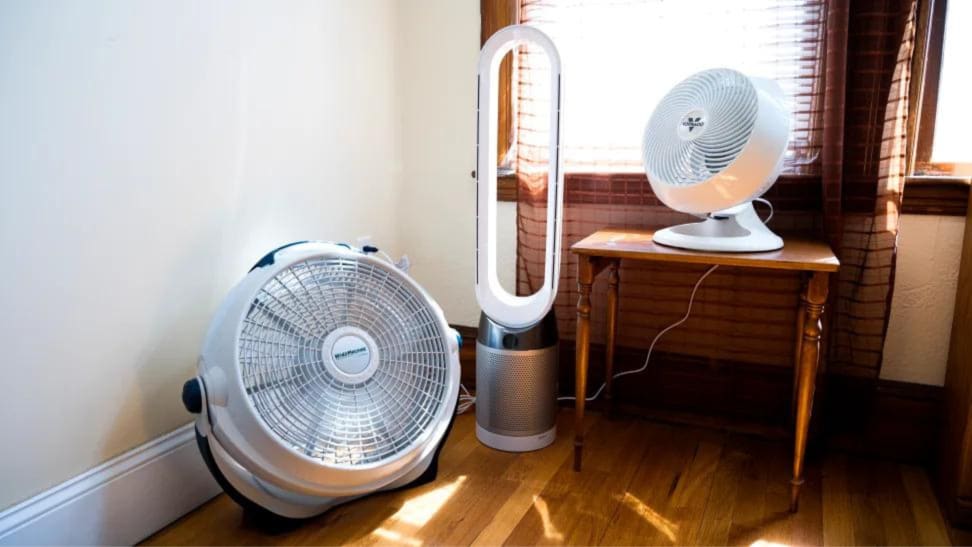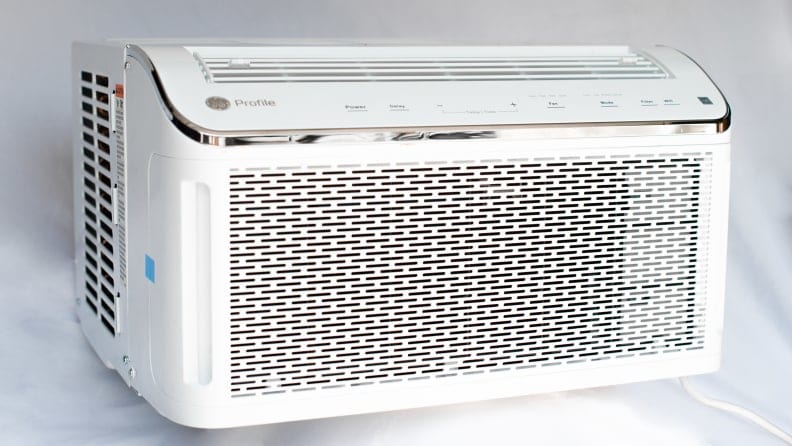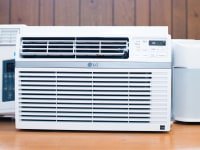 Credit:
Reviewed / Jackson Ruckar
Credit:
Reviewed / Jackson Ruckar
Products are chosen independently by our editors. Purchases made through our links may earn us a commission.
This summer is expected to bring the heat. Even if you think you can handle hot weather, expect this heat to creep into your home, whether you live in an apartment, a cottage, or an estate.
This is the kind of heat that will have most of us relishing the arctic breeze that air conditioning provides. Especially if you don’t want sweating indoors to become your new norm.
Central air conditioning may be your ideal route to a cool house, but there are several other effective options to explore. It’s worth mentioning that according to the Environmental Protection Agency, central air is the third-largest end use of energy in the home, making it hard on your electric bill and far less energy-efficient than cooling methods like portable air conditioning units, dehumidifiers, sun-blocking shades, and window tints. Keeping your home at an ideal temperature for the season is a first step.
And, if you’re in the market for air conditioning alternatives, here are a few tips for keeping a cool house during a heat wave.
1. Bring down the dew point with a dehumidifier
If heat and humidity are common in your region (New Orleans, Houston, Orlando), a dehumidifier is essential for creating a cooler space. Dehumidifiers remove water vapor from the air, leaving you with drier air that naturally feels cooler than humid air. Don't overlook other benefits you’ll get with dehumidifiers, too, like the elimination of common allergens.
Get the Frigidaire 50-pint Dehumidifier for $219
2. Turn your home into a cool house with fans
Debating between buying a new air conditioning unit or a fan? A solid fan can keep your home cool, while also being significantly more energy-efficient than air conditioners.
One tried-and-true way to help hot air escape is by creating a cross-breeze from two open windows on opposite sides of a room. This airflow pushes cold air in and warm air out. You can also achieve a cross-breeze effectively by opening up the chimney or a window on your roof. Known as the “chimney” or “stack” effect, this allows hot air to naturally rise out of the home, while cool air pushes through floor-level windows.
Make sure to maximize the effectiveness of a ceiling fan by setting it to spin counterclockwise—this sucks hotter air up higher and pushes cooler air back down, creating a wind-chill breeze.
For comfortable airflow within your work-from-home space, a desk fan creates a cool burst of local air when you don’t want to run an entire system.
Get the Vornado 660 Fan for $100
3. Use blinds and window tints to block out sunlight
According to the U.S. Department Of Energy, over one-third of all sunlight that enters the home is transferred into heat. Fortunately, window blinds, blackout curtains, and window tints reduce this.
To block the maximum amount of sunlight, you can adjust blinds to achieve total shade depending on the time of day. Blackout curtains are the ultimate way to keep out heat from sunlight. Take it a step further with smart blinds, which automatically adjust their angle and can even open and close on a set schedule. This way, you can beat the heat without any work on your end.
A discreet window tint defends you from the sun by absorbing light shining in. Here at Reviewed, we tested window tints in our lab, and we were surprised by how much direct sunlight they block out. As a plus, the tinted film works as another layer of insulation come wintertime.
Get the Design Solutions Quinn 100% Blackout Insulated Curtain Panel for $40
4. Invest in a portable air conditioning unit

Look for a portable A/C that cools and dehumidifiers, especially if you live in a humid climate.
A next-best alternative to central air conditioning is a portable air conditioner. By nature of their smaller size, they may seem less powerful, but they can be just as effective in cooling down a room.
Something to consider is that several portable air conditioning units also function as dehumidifiers, so you may want to invest in a multi-functional unit if you live in a muggy climate.
Get the Whynter Elite ARC-122DS Portable Air Conditioner for $414
5. Cordon off your cool with a window air conditioner

If your landlord allows for a window unit, it can help to save space.
A portable AC is a solid alternative to central AC, yes, but a window air conditioner takes up a lot less space—which definitely matters if you’re living in a tiny apartment or a home with small rooms.
Window units tend to be more affordable but less portable than portable ACs, because once you get it in the window for the season, it stays there. It’s a factor to consider if you aspire to fill multiple rooms with cool air.


